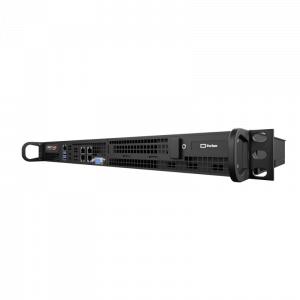RIP RSA AES: The Immediate Need of Quantum-Resistant Cryptography
Randy Siegel
Latest posts by Randy Siegel (see all)
- Freedom of Choice vs. Oppression of Big Tech - November 6, 2024
- The Case for Free/Libre and Open-Source Software: Enhancing Security and Privacy in the Digital Age - October 22, 2024
- RIP RSA AES: The Immediate Need of Quantum-Resistant Cryptography - October 22, 2024
The recent announcement from Chinese scientists about their successful use of a quantum computer to crack military-grade encryption has sent shockwaves through the cybersecurity community. This breakthrough, utilizing a D-Wave Advantage quantum computer, marks a significant milestone in the field of quantum computing. The implications of this development are profound, particularly for industries reliant on classical cryptographic systems like RSA and AES.
Quantum computers leverage quantum bits (qubits) that can exist in multiple states simultaneously, enabling them to solve complex problems much faster than traditional computers. This capability poses a real and substantial threat to the cryptographic algorithms that currently secure our most sensitive data. The Chinese researchers’ success in attacking algorithms critical to the Advanced Encryption Standard (AES) framework underscores the urgency of transitioning to quantum-resistant cryptographic solutions.
Enter the work of French scientist Damien Stehlé, whose contributions to the field of post-quantum cryptography are invaluable in this context. Steil’s ML-KEM (Module Learning with Errors Key Encapsulation Mechanism) is a promising candidate for securing data against quantum attacks. Based on the MLWE problem, ML-KEM offers resistance to both classical and quantum attacks, making it a robust choice for future-proofing cryptographic systems.
The National Institute of Standards and Technology (NIST) has approved three primary algorithms for post-quantum cryptography (PQC). Dr. Stehlé, is the founder of 2 out of 3 below:
- CRYSTALS-KYBER (ML-KEM): This algorithm is designed for key encapsulation mechanisms (KEM). It is based on the Module Learning with Errors (MLWE) problem and is known for its efficiency and strong security properties. ML-KEM is particularly suitable for securing communications and is already being implemented by companies like Purism to provide quantum-safe solutions.
- CRYSTALS-Dilithium: This algorithm is used for digital signatures. It is based on the Learning with Errors (LWE) problem and offers robust security against both classical and quantum attacks.
- SPHINCS+:This is another digital signature algorithm, but it is based on hash functions rather than lattice problems.
Each has its own strengths and is suited for different use cases, ensuring a comprehensive approach to post-quantum security.
At Purism, we are committed to ensuring the highest level of security for our users. We have already implemented ML-KEM and are actively integrating the technology throughout our product line. Please see a video demonstrating our work – Quantum Safe Communication with Purism
The importance of adopting quantum-resistant cryptography cannot be overstated. As quantum computing continues to advance, the risk of “harvest-now, decrypt-later” attacks—where adversaries collect encrypted data now and decrypt it once quantum computers become powerful enough—becomes a tangible threat. ML-KEM, with its strong security properties, provides a viable solution to this looming challenge.
The Chinese scientists’ breakthrough serves as a clarion call for the cybersecurity community to accelerate the adoption of quantum-resistant cryptographic algorithms like ML-KEM. The work of researchers like Damien Stehlé, is crucial in ensuring that our data remains secure in the quantum era. As we navigate this new landscape, it is imperative that we stay ahead of the curve and embrace the innovations that will safeguard our digital world.
Purism Products and Availability Chart
| Model | Status | Lead Time | ||
|---|---|---|---|---|
 | Librem Key (Made in USA) | In Stock ($59+) | 10 business days | |
 | Liberty Phone (Made in USA Electronics) | In Stock ($1,999+) 4GB/128GB | 10 business days | |
 | Librem 5 | In Stock ($799+) 3GB/32GB | 10 business days | |
 | Librem 11 | In Stock ($999+) 8GB/1TB | 6+ weeks | |
 | Librem 14 | Out of stock | New Version in Development | |
 | Librem Mini | Out of stock | New Version in Development | |
 | Librem Server | In Stock ($2,999+) | 45 business days | |
 | Librem PQC Encryptor | Available Now, contact sales@puri.sm | 90 business days | |
 | Librem PQC Comms Server | Available Now, contact sales@puri.sm | 90 business days |
Recent Posts
Related Content
- A Quarter Century After Cyberselfish, Big Tech Proves Borsook Right
- PureOS Crimson Development Report: November 2025
- Purism Liberty Phone Exists vs. Delayed T1 Phone
- PureOS Crimson Development Report: October 2025
- Landfall: A Case Study in Commercial Spyware


